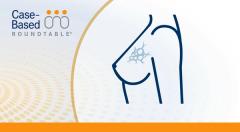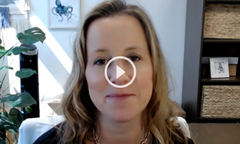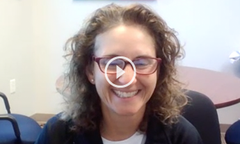
Antibody-Drug Conjugates Show Unique Advantage in Breast Cancer
Erika P. Hamilton, MD, discusses antibody-drug conjugates in multiple types of breast cancer, and when to use these drugs in sequence.
Episodes in this series

Erika P. Hamilton, MD, director of breast cancer and gynecologic cancer research at the Sarah Cannon Research Institute, discusses antibody-drug conjugates (ADCs) in multiple types of breast cancer, and when to use these drugs in sequence.
ADCs such as datopotamab deruxtecan (Dato-DXd), trastuzumab deruxtecan (Enhertu), and sacituzumab govitecan (Trodelvy) have been studied across breast cancer subgroups. The latter 2 drugs received indications for both hormonally driven and triple-negative breast cancer, according to Hamilton.
Typically, treatment for hormonally-driven breast cancer is endocrine therapy such as aromatase inhibition (AI) with a CDK4/6 inhibitor in the first line. Then there are different options in second line, but it is dependent on if the patient has a mutation, for example ESR1. After the patient progresses on endocrine therapy, ADCs can be considered as a replacement for chemotherapy that would have been used at this point.
TRANSCRIPTION:
0:10 | What's unique about the ADCs is that they aren't specific just to 1 type of breast cancer. We typically think about breast cancer as 3 types: HER2 positive, hormonally driven, and triple negative. For our ADCs, particularly trastuzumab deruxtecan and sacituzumab govitecan have indications in what we would consider hormonally driven as well as triple-negative breast cancer. I think that's really unique.
0:39 | For our patients who are hormonally driven, we typically exhaust our endocrine therapies. So, the first-line standard is an AI with CDK4/6. Second line, maybe fulvestrant [combination], PI3 or mTOR, AKT inhibitor, or maybe something like elacestrant if they have an ESR1 mutation. And then they continue to get endocrine therapy until their tumor shows us that it's no longer sensitive to endocrine blockade. Then when we start thinking about chemotherapy, that's where ADCs come in. So, it's important to make sure that we file ADCs as a chemotherapy substitute. It's not just, quote, a second-line or third-line therapy, especially when we're talking about patients with hormonally driven breast cancer, because their endocrine therapies come first.












































